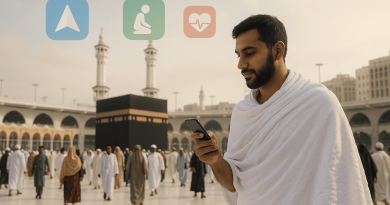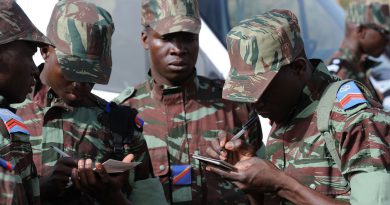Security in the Sahel after the Mali coup: What are the issues and challenges for regional and international countries?
by D. Blumann and Irina Tsukerman
Competing intelligence groups and defense mechanisms contribute to the proliferation of issues, and create additional political tensions.
Events in the Arab world, and in particular the fall of the Libyan regime of Gaddafi, have only reinforced the security vacuum in the Sahel-Saharan zone. The crisis in Mali will ease the security risks due to terrorist networks. At the same time, foreign military interventions in the region (Serval, Sangaris) demonstrate the priority that European states give to security risks in the region.
The chief among them has been France, which in 2013 launched Operation Serval to push back a terrorist incursion in the North. This was followed by other such counterterrorist and security support operations in 2014 and mid-July 2020, in the weeks leading up to the coup. Combat operations in the Sahel to repel the sprawling terrorist infrastructure continued in the years leading up to these events, with the United States joining the fray alongside France in Niger and other areas of operation.
While the Operation Barhkhane launched in 2014 continued for the years to come and the bulk of it was handled by troops, other governments such as Denmark, United Kingdom, and Estonia contributed helicopters and various air lift equipment and troops to the effort. Despite the involvement of at least ten European countries, support by various international institutions, the involvement of NATO, and US backing, however, the challenges remained great for a number of reasons.
First is the issue of the logistical integration of these forces. Quite simply, despite the dedication of the French and other troops, and the contribution of sophisticated equipment, running such operations in a hostile environment is a challenge, and even joint training exercises elsewhere are not a substitute for dealing day in and out with complex asymmetrical challenges.
Second, is the corruption of weak local government, which have spent a great deal of the money dedicated towards counterinsurgency elsewhere, to the point that European countries have decided to reallocate this funding towards direct involvement on the ground. Corrupt and weak governments are not well position to provide the logistical support, intelligence, and manpower needed to address these challenges.
Third refers to conflicting visions for the future of Sahel. European states and their US partners are not operating in an isolated environment but rather rely on the goodwill and interests of neighboring states. However, other African countries have their interests and agendas, and perhaps, have a different perspective on the security challenges and the proliferation of jihadist groups. Competing intelligence groups and defense mechanisms contribute to the proliferation of issues, and create additional political tensions. Both the financial and the human resources dedicated to these operations, without a doubt, have been substantial and to some degree successful; hundreds of terrorists have been liquidated by France alone.
This did not prevent the coup d’etat in Mali. The reasons are known, the main one being the corruption of the regime. However, as others point, out the problems in Mali are deep-rooted; the political corruption permeates the system and the political culture, getting rid of the head of state will not change these issues overnight.
For the countries of North Africa, including Morocco (which we cite as a practical example), the developments in the Sahelo-Saharan zone (which range from banditry to jihadist Salafism, including separatism and power conflicts as well as drought, desertification and the food crisis) have become one of their toughest challenges in terms of security policy. These concerns must be tackled alongside the interests of the EU and other European countries involved in the operation and in agreement with them.
The case of Morocco
Morocco and South-South Cooperation
Morocco has made its choice: south-south cooperation.
King Mohamed VI has placed Morocco at the heart of South-South cooperation and at the service of Africa, committing both financially and politically to African development.
For their part, Moroccan entrepreneurs include an African component in their strategy in several forms: subsidiaries, partnerships, hubs, co-development, etc. All of these joint ventures are blossoming all over the continent, thanks to Morocco’s overall foreign policy direction, which also guides the focus of business efforts. Moroccans see the African pivot as an opportunity to invest into promising rising entrepreneurial hubs, evading continuous dependency on EU, which is also facing economic challenges. For some, this direction also carries the promise of leaving the yoke of colonialist baggage behind.
Expertise fueling these growing efforts has been acquired over time through Morocco’s strategic partnership with Europe. This partnership has been upgraded and boosted with cash infusions in 2019 with regards to various forms of cooperation, including on security and development.
Morocco-Africa: Royal diplomacy
The pivotal moment for Morocco’s strategic policy reorientation can be inferred from the founding speech of King Mohammed VI for South-South cooperation on February 24, 2014. Since then, Morocco has been moving away from identifying itself with the Middle East and had increasingly sought to integrate into the African Union and to realign its political and cultural priorities accordingly.
What are the Challenges?
The stakes are high: Morocco can take advantage of its geographical location and its strategic relations with its European, American, Gulf and Mediterranean trading partners to position itself as an economic and financial hub towards the African continent.
Royal diplomacy has never been at the heart of the news, due to the exceptional visibility of King Mohamed VI in Africa. In other words, the diplomats who would otherwise be carrying out various implementation task related to the strategic fulfillment of this mission relied on King Mohammed VI’s high level involvement with heads of states to put in motion high level policies which would then trickle down to be executed by officials. But the ironing out of specific diplomatic details ended up being neglected in the process.
Goals
The objective of the programs seemed clear and sufficiently beneficial: Serving as a bulwark against extremism and religious terrorism, exploring business opportunities on a promising continent, strengthening Moroccan regional leadership. However, as a result of diplomatic non-involvement and failure to negotiate good deals on a practical level beyond high level agreements, which were supposed to serve as a lodestar, not a substitute for professional diplomacy. Morocco has paid dearly for this competition at the level of the former colonies of France. The return on these diplomatic efforts has been at the risk of cancellation through foreign backed meddling, such as the recent coup in Mali. This could partly explain the media campaign led by Paris against Rabat.
Religious cooperation: A competition between Morocco and Mali
Moroccan Islam described as “Islam of the golden mean”
Former Malian President Ibrahim Boubacar Keïta and King Mohammed VI signed a Memorandum of Understanding on September 20, 2013 on the training of imams which enabled the establishment of a training program for 500 imams over a period of two years. This training, carried out in 2 years, devoted mainly to the study of the Malikite rite and the moral doctrine which rejects any form of excommunication. We have had an opportunity to visit the imam training center in Morocco and to witness in person the type of curriculum such imams would be exposed to and take back to their countries. It is a diverse and enriching program, which also teaches about other religions, and gives the trainees access to obtaining practical skills in addition to theological grounding.
Between Saudi Arabia, Iran and Qatar and Mali (and also the region)
Saudi Arabia and Iran: Both countries had funded religious missions and charitable activities to spread their Salafist and Shiite beliefs respectively and exert ideological and religious influence in the region. This was particular concerning before 2017, when Saudi Arabia had moved to enforce the ban on the Muslim Brotherhood influence over Islam in the Kingdom and curtailed any activities which could be perceived as extremist. Much of its humanitarian and theological outreach in Africa is now being handled through the Muslim World League (MWL), which has dedicated its mission to promoting tolerance in its own manner.
However, Qatar (Islam of the Muslim Brotherhood), and its counterpart in African outreach, Turkey, have not undergone any form of reform or liberalization, and on the country had doubled down on investing into Islamist institutions and ideology in Africa and elsewhere. Indeed, they are pandering to certain constituencies by critiquing the Moroccan programming and Saudi reforms as forms of heresy.
Failure of Moroccan intelligence services in Mali
Like other countries, including mainly France, Morocco has done everything to strengthen its importance as a state capable of contributing to the securing, stabilization and development of the Sahelo-Saharan region. These contributions would develop in an exceptional way on the basis of its intelligence services, deemed competent according to a certain Moroccan press and the testimonies of certain officers. But this effort failed, for reasons which remain an enigma. Our sources murmur one of the reasons: a certain purge at the level of foreign affairs, in particular. Some diplomats, who dream of taking the place of the technocrat Nasser Bourita (the Foreign Minister), whom they deem “non-political and …”, spend more time publishing “Tribunes” (and other outlets of that sort) than performing the more challenging and less visibly rewarding tasks of that profession. Other services are made conspicuous by their absence.
But King Mohamed VI has a winning card
According to our sources, this card demonstrated, despite its bitterness and its problems with the Makhzen (the Moroccan system), its availability, through nationalism to use its moral authority and its networks in Mali and elsewhere, in the service of Morocco.
We cannot disclose the identity of this personality at his request. “Security obliges”. However, we can share that this individual is the most influential and respected leader still alive since Youssoufi.
Irina Tsukerman is a New-York based Human Rights Lawyer, and National Security Analyst. She tweets under @irinatsukerman.
D. Blumann is a New York based international serial entrepreneur, Geo-Strategist and National Security Analyst.



